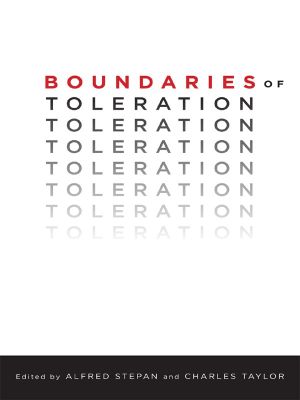Boundaries of Toleration

- Authors
- Stepan, Alfred
- Publisher
- Columbia University Press
- Tags
- pol011000 , philosophy , political , political science , international relations , general , phi019000
- ISBN
- 9780231536332
- Date
- 2014-02-11T00:00:00+00:00
- Size
- 15.49 MB
- Lang
- en
How can people of diverse religious, historical, ethnic, and linguistic allegiances and identities live together without committing violence, inflicting suffering, or oppressing each other? Western civilization has long understood this dilemma as a question of toleration, yet the logic of toleration and the logic of multicultural rights entrenchment are two very different things.In this volume, contributors suggest we also think beyond toleration to mutual respect, practiced before the creation of modern multiculturalism in the West. Salman Rushdie reflects on the once mutually tolerant Sufi-Hindu culture of Kashmir. Ira Katznelson follows with an intellectual history of toleration as a layered institution in the West and councils against assuming we have transcended the need for such tolerance. Charles Taylor advances a new approach to secularism in our multicultural world, and Akeel Bilgrami responds by urging caution against making it difficult to condemn or make...
How can people of diverse religious, ethnic, and linguistic allegiances and identities live together without committing violence, inflicting suffering, or oppressing each other? In this volume, contributors explore the limits of toleration and suggest we think beyond them to mutual respect. Salman Rushdie reflects on the once tolerant Sufi-Hindu culture of Kashmir. Ira Katznelson follows with an intellectual history of toleration as a layered institution in the West. Charles Taylor advances a new approach to secularism in our multicultural world, and Akeel Bilgrami responds by offering context and caution to that approach. Nadia Urbinati explores why Cicero’s humanist ideal of Concord was not used in response to religious discord. The volume concludes with a refutation of the claim that toleration was invented in the West. Rajeev Bhargava writes on Asoka’s India, and Karen Barkey explores toleration within the Ottoman and Habsburg Empires. Sudipta Kaviraj examines accommodations and conflicts in India, and Alfred Stepan highlights contributions to toleration and multiple democratic secularisms in such Muslim-majority countries as Indonesia and Senegal.
How can people of diverse religious, ethnic, and linguistic allegiances and identities live together without committing violence, inflicting suffering, or oppressing each other? In this volume, contributors explore the limits of toleration and suggest we think beyond them to mutual respect. Salman Rushdie reflects on the once tolerant Sufi-Hindu culture of Kashmir. Ira Katznelson follows with an intellectual history of toleration as a layered institution in the West. Charles Taylor advances a new approach to secularism in our multicultural world, and Akeel Bilgrami responds by offering context and caution to that approach. Nadia Urbinati explores why Cicero's humanist ideal of Concord was not used in response to religious discord. The volume concludes with a refutation of the claim that toleration was invented in the West. Rajeev Bhargava writes on Asoka's India, and Karen Barkey explores toleration within the Ottoman and Habsburg Empires. Sudipta Kaviraj examines accommodations and conflicts in India, and Alfred Stepan highlights contributions to toleration and multiple democratic secularisms in such Muslim-majority countries as Indonesia and Senegal.--Hans Oberdiek, Swarthmore College "Journal of Church and State"